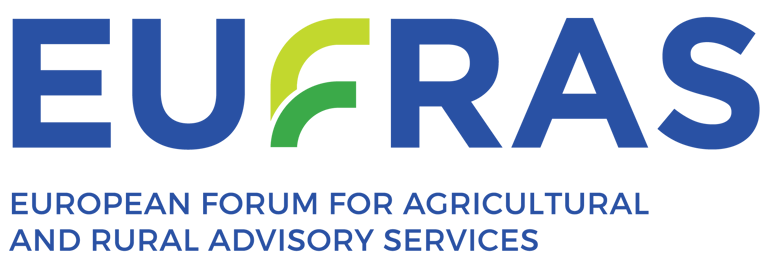Young consultants from ten countries in the first YOUNG-EUFRAS seminar
3 days, 18 participants, 10 nations - this was the starting point for the first international CECRA Workshop "Communication in Advisory Work - CECRA Module 2" of the young agricultural advisors of Young-EUFRAS from February 21 to 23 at the Agricultural University of Athens in Greece.
ERASMUS+CECRAYOUNGEUFRAS
9/29/20206 min read
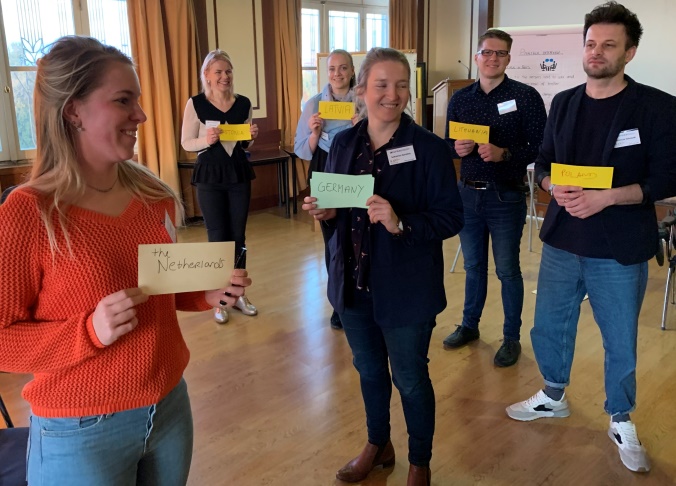

3 days, 18 participants, 10 nations - this was the starting point for the first international CECRA Workshop "Communication in Advisory Work - CECRA Module 2" of the young agricultural advisors of Young-EUFRAS from February 21 to 23 at the Agricultural University of Athens in Greece.
After all participants had arrived in the seminar room of the Agricultural University, the first task started immediately. Finally it is called WORK-Shop. The partner interview at the beginning helped to break down the initial language barriers and create a good working atmosphere for the next day. The first theoretical input was discussed beforehand. The pitfalls of communication, a classic in consulting methodology, caused some of the participants to sigh: "At last the challenges in daily communication have found a name.
The second day of the course began with a small movement unit (Name & Move), which was at the same time a repetition of the participant names learned the evening before. Also of interest were the country- and language-specific names for consulting. From Extension to Consulting and Advisory Work a colourful dictionary was created. There was European agreement again on the tasks of a consultant and the question of what makes a good consultant. Also some participants were not yet sufficiently informed about the tasks of EUFRAS, the European Network of Agricultural Extension Services and the qualification programme CECRA. However, the opportunities for methodological further training through CECRA modules met with great interest.
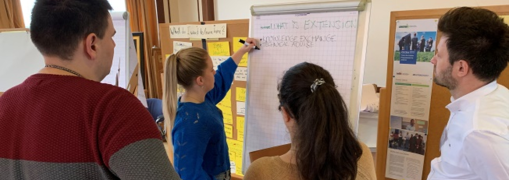

Group work on the understanding of extension services
We continued with "Active Listening". Active Listening - sounds easy, but quickly turned out to be not so easy for the participants. What makes a good listener? Body language, interest, openness, verbalising and much more was developed in the groups and then tested. Verbalising in particular posed a challenge for some young consultants. In most of the participating countries, there is no intensive training in counselling like the Bavarian trainees at the FüAK.
Consulting in focus - exercises with case studies
Now it was called "Request - Offer". With the help of a small offer- and search-exchange we started to practice. The small groups formed themselves into consultant, client, observer and moderator. It was particularly important that the phases of problem solving, known as the ACTUAL-TARGET PATH, were adhered to. The variety of offers from Open Farm Days, herd management, laying hen management, innovation consulting and much more convinced the participants and so intensive and constructive exercise units were held. Lecturers Eleni Zarokosta and Pablo Asensio provided the appropriate support and feedback for each role. The first international CECRA seminar for young consultants was concluded with a joint final round. Contact details were exchanged and the confirmation of participation was proudly received by all.
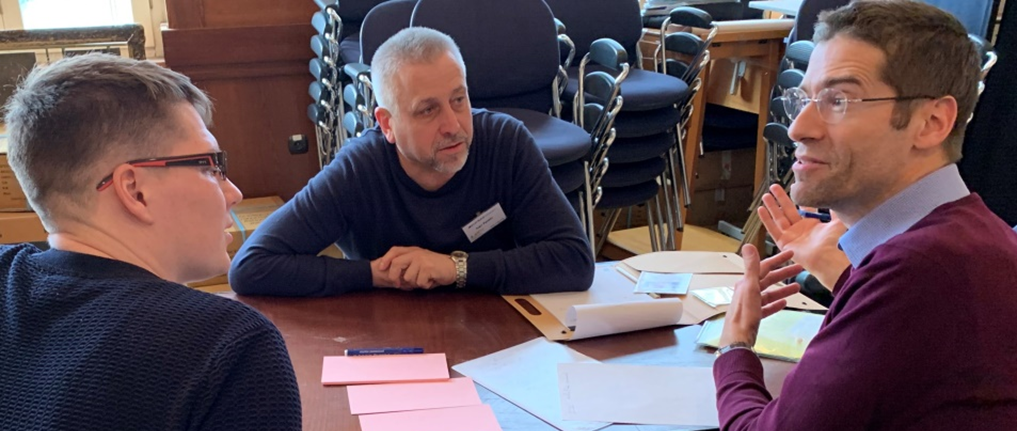

Representatives from Lithuania, Ukraine, France at one table - international consulting exchange
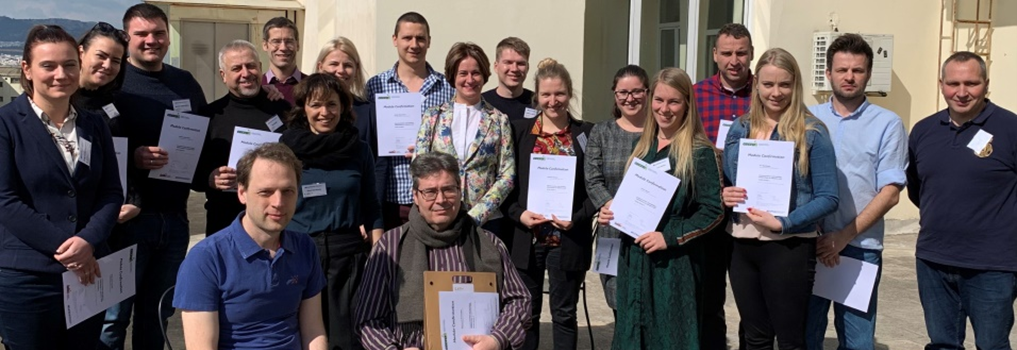

Final picture of the participant group of the first YEUFRAS-CECRA seminar
Continuing (only) with innovation
After the communication training had laid an important foundation for the consulting work, the "Intro Workshop Innovation Support" continued. Dr. Eelke Wielinga from the Netherlands presented the innovation methods of the i2connect project in a 4-hour workshop. The methodology of innovation consulting was a completely new area for many participants, as it follows a different approach than problem solving in individual company consulting. It was clarified in advance whether we need innovation in consulting. This question was unanimously answered with a yes. Without innovation in agriculture and thus also in extension services, most of the young consultants viewed future developments critically. The lecturer, Dr. Wielinga, with his field research on innovation projects, had a decisive influence on the current EU-EIP agricultural policy. On the basis of case studies provided by the group, methods for reflecting on innovation processes were applied.
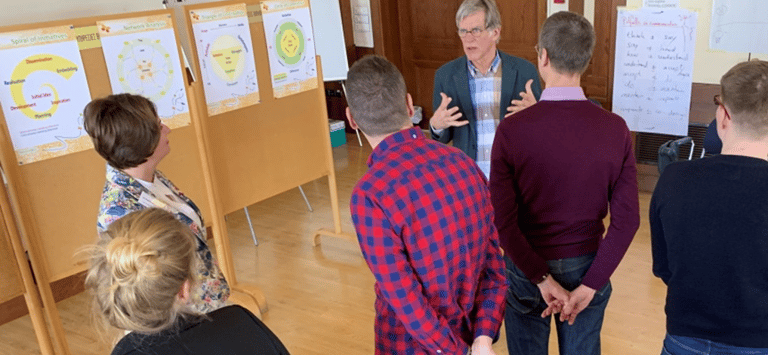

Dr. Eelke Wielinga explains the importance of energy for working with innovation initiatives
What is the methodology for innovation consulting?
- Initiative spiral: At the beginning of every innovation is the idea, which inspires further inspiration and takes shape. This is followed by the first planning steps, and the development process moves closer and closer to implementation. After implementation, the innovation is spread further until it has finally arrived in everyday life. Red phases alternate, in which networking is the main focus, with blue phases, which should be organized with project management tools.
- Circle of Coherence: In order for innovations to emerge, a vital space for cooperation between different partners (multi-actor approach) is needed, in which stimulating dialogue and exchange take place, constructive negotiations can be conducted, an organisational framework provides structure and solution-oriented work on challenges is carried out. The Köheränzkreis gives advice on how innovation consultants can intervene when disturbances in the innovation process occur.
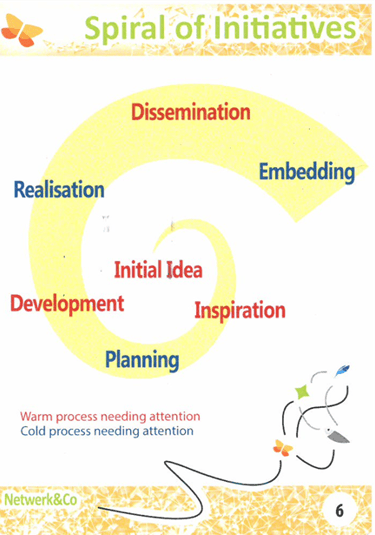

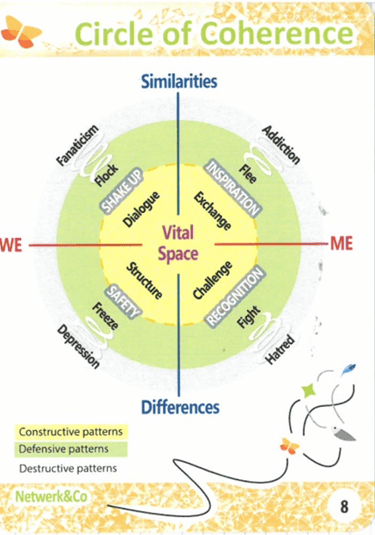

Consulting methods for innovation support (toolsfornetworkers.nl)
Important terms in innovation consulting:
Innovation: What is new? For whom is it new? Which problem is solved? Where are the advantages?
Innovation process: Who had the brilliant idea? Who took the initiative to implement it? What is the current status of the innovation? Where are there obstacles at the moment? What do those involved expect from the near future?
Innovation support: Which supporters are involved? What contribution do you make? What would be without support?
Actors and network: Which actors play a key role? Who are the driving forces? Which networks are needed and how can they be expanded?
Environment: What external factors are helpful? Which hindering ones? What influence does innovation have on the environment?
Disturbances: Are there disturbances in the innovation process? Why were there disturbances? What are the consequences of the disruption? Was there a turning point?
Dissemination: What influence does the innovation have on the environment? Do others show interest in the innovation? Has it already triggered changes in behaviour? Has there been targeted work on dissemination? If so, by whom?
Future perspectives: Assuming that all goals and dreams are achieved, what would the situation be like in a few years? What will be the biggest challenge to achieve this goal? What is the strategy to achieve it?
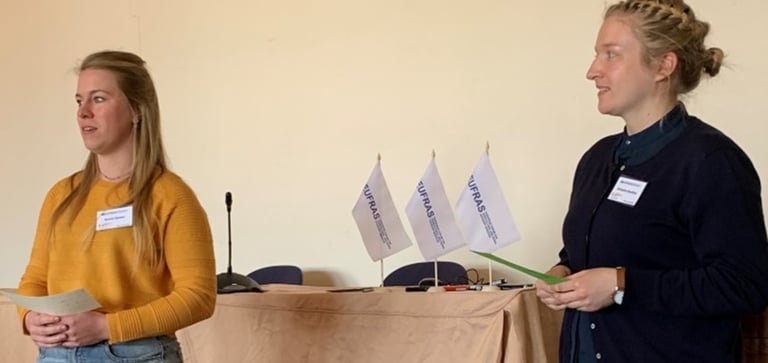

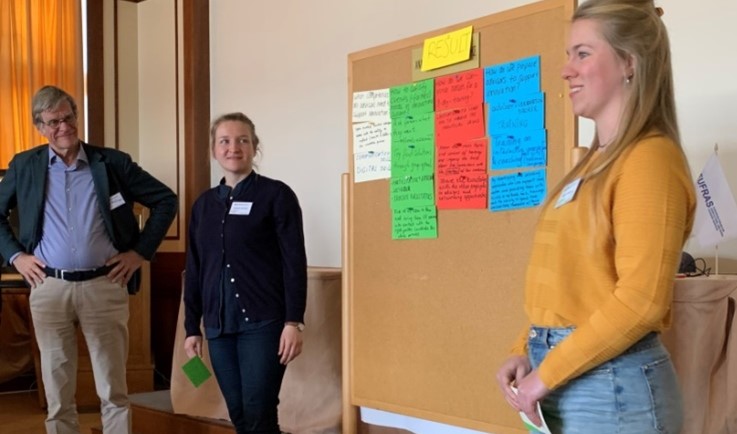

Dr. Eelke Wielinga reports at the EUFRAS Annual General Meeting with Karoline Schramm (AELF Schweinfurt) and Annick Spaans (ZLTO) from the YEUFRAS introductory workshop on the EU project i2connect
The results of the workshop were presented at the EUFRAS Annual General Meeting by Dr. Wielinga and the participants Annick Spaans (ZLTO, NL) and Karoline Schramm (AELF SW, DE). In order to ensure that all EUFRAS representatives are involved in the topic, a group work was carried out with the following questions:
"Which competences does an innovation consultant need?"
"How can we prepare the consultants for innovation consulting?"
"How can we meet the needs of farmers in innovation consulting?"
and:
" How can supervisors be persuaded to send their consultants on a 9-day training program?"
The questions were answered and discussed in small international groups. In the end, everyone agreed that innovation consulting will become more and more important and that training of consultants in innovation consulting methods is necessary. Helpful in this respect are the further training opportunities within the framework of the i2connect project.
In general, innovation was the major topic of the EUFRAS annual general meeting on 24th and 25th February 2020 in Athens, see the report by Pablo Asensio.
On Tuesday the conference room was already filled with numerous trolley cases. Immediately after the end of the conference most participants went to the airport. Five days in Athens, were five days full of input. Learning new consulting methods, repeating and applying methods already learned, getting to know EU projects and an outlook on the further work of EUFRAS and its partners. The five days were also full of international exchange. Especially the young consultants used the time to exchange their experiences, trainings and challenges. The end of the day was spent exploring the city. At the latest after the final short visit to the Acropolis, all contact details were exchanged and first plans for an excursion to Bavaria on the subject of special cultures were forged.
Karoline Schramm
Participants from 10 countries in the first Young-EUFRAS seminar in Athens 21-23 February 2020
Project No. 2022-1-LV01-KA210-VET-000082892
Funded by the European Union. Views and opinions expressed are however those of the author(s) only and do not necessarily reflect those of the European Union or the European Education and Culture Executive Agency (EACEA). Neither the European Union nor EACEA can be held responsible for them.

Riga str 34, Ozolnieki, Jelgavas novads, LV-3018, Latvija
Phone: +371 29736468
mail: anita.dzelme@llkc.lv
Requisites:
Biedrība "Eiropas Lauksaimniecības un lauku konsultantu asociācija"
NGO " European Forum for Agricultural and Rural Advisory Services"
Reg nr. 40008219277

